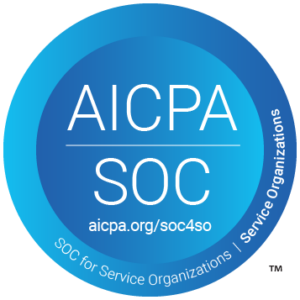Just as artificial intelligence is in the early stages of impacting practically every business, AI is set to assume a bigger role across college campuses. But will the growing reliance on robots compromise the human touch that goes hand in hand with an institution’s identity (and that of their student body)?
USA Today Addresses AI and Admissions
USA Today addressed this skepticism in a recent article noting that AI is helping admissions teams manage the numbers game of prospects and applicants in order to better support and shape their incoming class.
Since admitting students with the highest chance of success requires a commitment to reviewing a sizable applicant pool – for a school of 5,000 enrolled this often means wading through 20,000 to 40,000 applicants – colleges have started leveraging artificial intelligence to scale their teams’ reviewal capabilities.
Brian Knotts, chief architect and senior vice president of research at Ellucian says AI can help schools “predict the kinds of things that caused…success or failure to matriculate” by grouping data characteristics that show why some students persist while others drop out.
Of course, computers must still take a backseat to the human judgement involved in determining the viability of being admitted. Holistic reviews are still first and foremost a “human endeavor”, UT-Austin director of admissions Miguel Wasielewski clarifies. People, not machines, pore through and evaluate an applicant’s written response to essay and short answer questions, transcripts, test scores and letters of recommendation.
AI can support a holistic review of students by adding perspective on the kinds of interventions that would guide students towards a timely graduation.
While Kasey Urquidez, the vice president of enrollment management and dean of undergraduate admissions the University of Arizona, would never want her team to make a decision without the final review of a trained staff member, she can envision situations where computers might pick up on under considered applicants whose backgrounds indicate a chance at college success – perhaps lower overall GPA overshadowing grades that have been on an upward trajectory, etc.
Determining if a Student Will Be Successful
The most important question Urquidez and her team ask of a student is, ‘Are they going to be successful here?’ Augmented intelligence will help colleges spend the most time on applicants who are a good fit, are genuinely interested in the institution, and have the financial capability of attending. Oral Roberts University CIO Michael Matthews sees it as “a recommendation based on information, but you still have the human ability to validate what it’s telling you.”
Arguably the strongest impact AI solutions have made across Higher Ed has been in addressing the problem of “summer melt”, where students who are accepted and have confirmed enrollment never show up for the fall. The vast majority of this student body is non-white and represents one of the largest low-income populations in the country most eligible for financial aid.
Georgia State Tackles Student Success with AI
Georgia State pioneered a movement to address summer melt by partnering with AdmitHub to build an AI chatbot system called ‘Pounce’. “There were all these bureaucratic things students have to do during the summer: fill out applications for financial aid, register for classes, pick a major, sign up for housing,” notes Tim Renick, their senior vice president for student success.
In the summer of 2016 GSU built a knowledge base of more than 2,000 text-based answers to enrollment FAQS to deliver answers to everything from completing the FAFSA to ‘what do I do if my parents are getting a divorce?’ on a text-based platform students could access 24/7 on their smartphones.
Pounce answered more than 200,000 questions in the three months leading up to matriculation, with response times of seven seconds, and reduced summer melt by 22% – since then this metric has grown to 37%.
All answers are seeded in the knowledge base by humans, allowing the AI to then deliver the best-fit responses and route more sophisticated questions to human staff. Only 1% of messages needed to be escalated to staff, a particularly important factor when you consider that the usual business functions of a university are “the exact inverse of the behavioral patterns of your average 17-year-old,” Renick says. GSU had higher usage of the bot at 1 am they they did at 10 am.
Equally compelling for Renick and his team was the finding that many students admitted to asking the bot questions they wouldn’t have otherwise felt comfortable posing to a human, such as a difficult family situation.
In reality, institutions like GSU have used AI to enhance staff impact, not replace it. By using Pounce as a communications filter to answer FAQs and deliver timely nudges, staff were freed up to focus on where they could make the biggest impacts and enhance the student experience.
This is the precise niche that AI is forming across Higher Ed – it’s enabling colleges to provide more holistic student support throughout the entire student lifecycle, from application all the way through graduation.
To learn more about the AI landscape, download our free AI Glossary for University Leaders.

